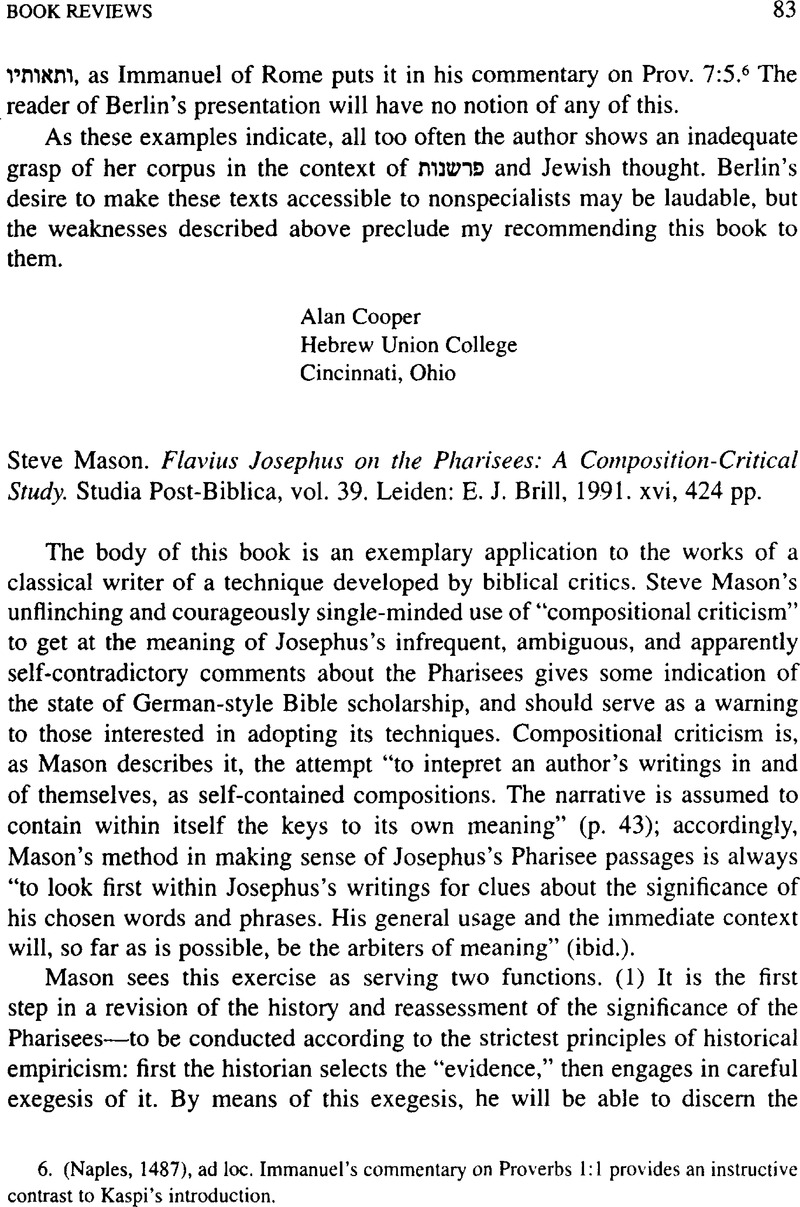No CrossRef data available.
Article contents
Steve Mason. Flavins Josephus on the Pharisees: A Composition-Critical Study. Studia Post-Biblica, vol. 39. Leiden: E. J. Brill, 1991. xvi, 424 pp.
Published online by Cambridge University Press: 15 October 2009
Abstract

- Type
- Book Reviews
- Information
- Copyright
- Copyright © Association for Jewish Studies 1994
References
1 It is only fair to point out that the late Morton Smith was my teacher and I myself have argued in print for a (rather drastically modified) version of the Smith-Neusner hypothesis. Though it would not be entirely wrong to consider this review an act of hesed shel ′emet, as it were, the problems with Mason'S book are real.
2 Mason'S decision to interpret passages in War in light of data in Antiquities, Life, and Against Apion vitiates his conclusion about the unity of Josephus'S oeuvre because it presupposes it. This is a major defect of the book, but limited space precludes full discussion.
3 I should also point out that though he claims to be comprehensive, he actually fails to mention War 2.411, in which the leaders of the Pharisees are listed with the high priests and lay aristocrats as champions of the peace party. An acknowledgment of this passage might have modified Mason'S belief that Josephus was always hostile to the Pharisees, In fact, in War, Josephus is indifferent to them, considering them at most a respectable and legitimate group of Jews of rather little significance.




